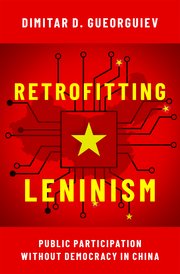 By controlling a huge volume of data, Beijing is conducting a grand experiment in 21st century authoritarian governance, FT analysts James Kynge and Sun Yu write in the FT Big-Read ‘China and Big Tech: Xi’s blueprint for a digital dictatorship’:
By controlling a huge volume of data, Beijing is conducting a grand experiment in 21st century authoritarian governance, FT analysts James Kynge and Sun Yu write in the FT Big-Read ‘China and Big Tech: Xi’s blueprint for a digital dictatorship’:
“It’s been called digital Leninism or techno-authoritarianism,” says Andrew Gilholm, a director at Control Risks, a risk consultancy. … “And it’s not only about the big brother stuff,” he adds. “The appeal for Beijing is you use e-governance instead of electoral accountability to rein in local corruption. You can use data instead of privatization to boost competition.”
Dimitar Gueorguiev, associate professor at Syracuse University, says the digital technologies deployed by Beijing have helped it keep tabs on popular sentiment and needs. “I argue that the CCP has overcome the information acquisition problem, thanks in large part to the digital ecosystems it has established,” says Gueorguiev, author of Retrofitting Leninism. “As a result, today’s China is more perceptive of public opinion, less prone to policy blunders and better equipped to manage its own bloated bureaucracy.”







